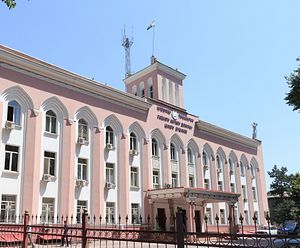The series of bad news emanating from Central Asia in 2015 has been unsparing. Kazakhstan’s economic outlook is bleak, with the country being battered by depressed oil prices and Russian irredentism. Kyrgyzstan, that last and best bastion of democratic hopes in the region, just saw a parliamentary committee approve a “foreign agents” law modeled on a Russian precedent, targeting its non-governmental sector.
Tajikistan, however, owns the most distinct string of depressing developments over the past two weeks. Earlier this month, an unknown gunman assassinated opposition leader Umarali Kuvatov in Istanbul. Kuvatov, leader of the Group 24 movement – a nascent, largely overlooked opposition organization deemed “extremist” by authorities – had applied for asylum in Turkey. He died before he received an answer.
The assassination follows the deaths of a pair of other post-Soviet opposition leaders, Russia’s Boris Nemtsov and Kazakhstan’s Rakhat Aliyev. While Nemtsov’s assassination wrought widespread consternation among Russia-watchers, and while Aliyev was the former son-in-law of Kazakhstan President Nursultan Nazarbayev, Kuvatov’s death may have the widest political repercussions. His assassination occurred in conjunction with recent parliamentary results, which, for the first time in 15 years, left the primary opposition party without any seats. Taken together, as The Economist wrote, “[e]vents in recent weeks seem to confirm that Tajikistan’s dictator has decisively turned his back on the country’s fragile post-civil-war order.”
That fragility is only likely to grow moving forward, and not simply due to political machinations. On Monday, Tajikistan’s Asia-Plus reported that the International Monetary Fund projected a drop of 30 percent within Tajikistan’s remittance rate. The Russian analytical agency TMT Consulting also predicted remittances from Russia will drop up to 30 percent this year. Considering remittances – predominantly from Russia – accounted for more than 40 percent of Tajikistan’s GDP in 2014, the hit will be even steeper than prior estimates indicated.
As one regional observer recently noted, we’re no longer in a Russian economic crisis, but a “Eurasian economic crisis.” Toss political assassinations into the mix, and this year has proven the most troubling for regional governments – and regional opposition – in some time. And it’s only beginning.

































